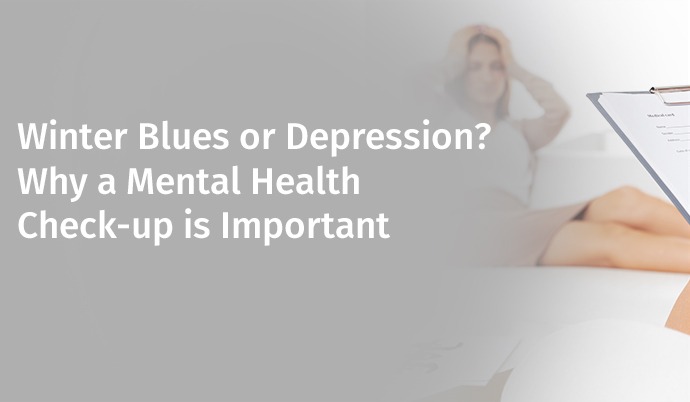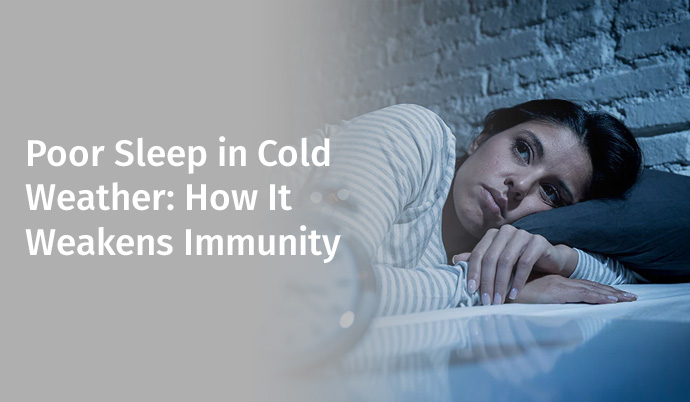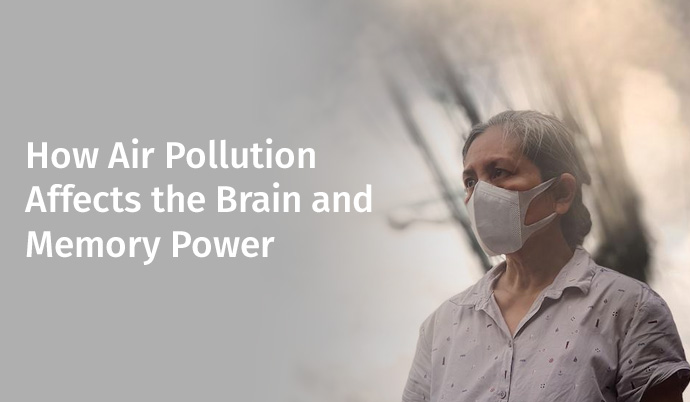
As winter approaches, it is the ideal time to start planning and moving from a reactive response to one that is pro-active about your mental well-being. It is first important to recognize the difference between a normal "winter blues" and the more serious idea of "winter depression." Second and most importantly, the value you can gain from a professional mental health check-up to help prepare and protect your mind for the upcoming months.
Your Winter Mental Health Plan
Winter Blues vs. Winter Depression (SAD)
It's crucial to understand that not every dip in mood during colder months is the same. The spectrum ranges from a mild funk to a debilitating clinical disorder.
Understanding the Winter Blues
Winter blues is a very common, subsyndromal condition. It's a little more tiredness, little less social, little depressed feeling. You might be more inclined to be eating carbohydrates and can't seem to get out of bed. But your ability to function at work (or school) and in your relationships is not significantly impaired. It is just a period of being in a short-term state that will usually lift on its own.
What is Winter Depression (Seasonal Affective Disorder – SAD)
Seasonal Affective Disorder is not just “the blues.” It is a clinical diagnosis of Major Depressive Disorder with a seasonal pattern. The symptoms of major depression are much more severe and longer lasting, and impact your life much more seriously. Another factor in the condition is that the brain's reaction to lowered sunlight may make it hard to regulate your internal clock (circadian rhythm) and reduce the very important serotonin, a neurotransmitter that is also a mood regulator.
Symptoms That Demand a Professional Check-up
If you experience several of the following symptoms for most of the day, nearly every day, for at least two weeks, it's a strong indicator you should seek a professional opinion.
The Indian Context: Unique Winter Challenges
While SAD is classically associated with colder climates, the Indian winter presents its own unique set of triggers for mental health issues.
Why a Mental Health Check-up is Important
A proactive check-up with a mental health professional is not a sign of weakness; it's a sign of strength and self-awareness. Here’s why it’s so important:
Your Proactive Winter Wellness Plan with Sir Ganga Ram Hospital
Empowering yourself with knowledge is the first step. The next is seeking expert guidance for a personalized care plan. The Department of Psychiatry and Mental Wellness at Sir Ganga Ram Hospital is committed to providing confidential, compassionate, and holistic mental healthcare.
Our team of experienced psychiatrists and therapists understands the unique challenges of seasonal mental health issues. We offer comprehensive evaluations to provide an accurate diagnosis and work with you to create a proactive wellness strategy tailored to your needs. You do not have to navigate the coming winter alone.
Take the first step towards a healthier, happier winter. Book a consultation with our specialists today.
Frequently Asked Questions (FAQs)
Q1: Is winter depression a "real" medical condition?
Yes, absolutely. Seasonal Affective Disorder (SAD) is a recognized subtype of Major Depressive Disorder in the Diagnostic and Statistical Manual of Mental Disorders (DSM-5), the standard classification used by mental health professionals worldwide.
Q2: Can light therapy work for winter depression in India?
Yes, for many people, it can be effective. Light therapy involves sitting in front of a special light box for a set amount of time each morning. It mimics natural sunlight and can help regulate the brain's chemistry. A psychiatrist can advise if it's a suitable option for you.
Q3: What is the first step if I think I need help?
The first and most courageous step is scheduling an appointment with a mental health professional or even your general physician. Simply talking about your symptoms with an expert can provide immense relief and set you on the path to feeling better.




